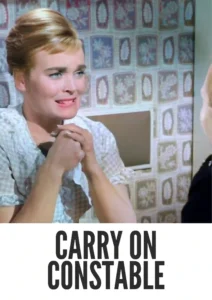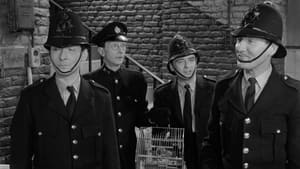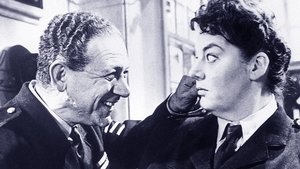Contact: info@alwanfilm.com
Video Sources 0 Views
- Carry On Constable 1960 Colorized


Carry On Constable 1960 Colorized
Synopsis
Table of Contents
ToggleCarry On Constable 1960 Colorized Review: A Hilarious Journey Through British Comedy

Introduction
The British film industry is renowned for its unique brand of humor, and few series have encapsulated this better than the Carry On films. Among them, Carry On Constable (1960) stands out as a delightful comedy that provides a humorous look at the everyday life of police constables. Directed by Gerald Thomas and featuring a talented ensemble cast, this film marks the second installment in the Carry On series, which has become synonymous with British comedy. In this review, we will explore the film’s comedic elements, character dynamics, and its enduring legacy within the context of British cinema.
Check The Full Colorized Movies List
Check Our Colorized Movies Trailer Channel
Understanding Carry On Constable 1960 Colorized: Director, Cast, and Genre
Director’s Vision
Gerald Thomas, a stalwart of British cinema, directed Carry On Constable (1960) with a clear vision of delivering light-hearted humor that appeals to a broad audience. His approach combines slapstick, situational comedy, and witty dialogue, creating a film that is both entertaining and accessible. Thomas’ knack for assembling talented actors and his understanding of comic timing contribute to the film’s success.
The Iconic Performance of Actors
The film boasts an impressive cast, including well-known actors from the Carry On series. Sid James shines as the mischievous Inspector, whose antics drive much of the film’s humor. Kenneth Williams, a frequent contributor to the series, delivers his signature style of comedic performance, adding to the film’s charm. Other notable cast members include Charles Hawtrey, Joan Sims, and Bernard Cribbins, all of whom contribute to the ensemble’s comedic chemistry.
Exploring the Genre
Carry On Constable (1960) exemplifies the British comedy genre, characterized by its blend of innuendo, slapstick humor, and situational comedy. The Carry On films often parody social institutions, and in this case, the police force becomes the target of gentle satire. The film’s lighthearted approach to serious subjects makes it a beloved classic among fans of British humor.
Exploring the World of Carry On Constable 1960 Colorized: Plot and Characters
Detailed Synopsis
Carry On Constable (1960) follows a group of bumbling police officers in a small British town as they attempt to solve a series of comedic misunderstandings and crimes. The story kicks off with the arrival of a new Inspector, who is determined to clean up the police force and restore order. However, his well-meaning efforts are quickly thwarted by the incompetence and ineptitude of his officers.
The plot is a series of interconnected comedic scenarios, including mistaken identities, slapstick gags, and miscommunication among the officers. As the story unfolds, the officers must navigate a series of hilarious obstacles, culminating in a chaotic climax that leaves the audience in stitches.
The character dynamics are a significant strength of the film, with each officer bringing their unique quirks to the table. Sid James’ Inspector is both authoritative and absurd, while Kenneth Williams’ character adds a layer of campy flamboyance. The supporting cast members, including Joan Sims and Charles Hawtrey, contribute to the film’s overall comedic atmosphere.
The Art of British Comedy
Understanding the Genre
British comedy has a rich history, often characterized by its dry wit, absurdity, and emphasis on character-driven humor. The Carry On series, in particular, is known for its ability to mix various comedic styles, from farce to satire. Carry On Constable (1960) exemplifies this blend, utilizing physical comedy and clever dialogue to elicit laughs from its audience.
The film’s humor often relies on the absurdity of the situations faced by the characters, turning mundane tasks into chaotic adventures. This approach allows the film to explore themes of authority, incompetence, and social norms in a light-hearted manner.
Carry On Constable 1960 and Its Cultural Context
The Decision to Create a Police Comedy
The release of Carry On Constable (1960) came at a time when the British public was becoming increasingly interested in comedic portrayals of authority figures. The police, often seen as symbols of law and order, provided a rich source of material for satire. The film capitalizes on this trend, offering a humorous take on the challenges and absurdities of police work.
The decision to focus on a police comedy reflects the changing societal attitudes of the era. In the post-war period, there was a growing sense of disillusionment with authority, and the Carry On films tapped into this sentiment, allowing audiences to laugh at the very institutions meant to uphold order.
The Legacy of Carry On Constable
Impact on British Cinema
Carry On Constable (1960) is notable not only for its comedic brilliance but also for its impact on the landscape of British cinema. As one of the early entries in the Carry On series, it set the tone for future films and established a formula that would be replicated in subsequent installments. The film’s success contributed to the overall popularity of the Carry On brand, which would continue to produce numerous films throughout the 1960s and 1970s.
The Carry On series has left a lasting legacy, influencing generations of comedians and filmmakers. Its blend of innuendo, slapstick, and ensemble comedy has become a hallmark of British humor, and its characters have become iconic within popular culture.
Director’s Cinematic Legacy: Beyond Carry On Constable 1960 Colorized
Gerald Thomas’ Influence
Gerald Thomas’ work on Carry On Constable (1960) represents just a fraction of his extensive filmography. Thomas directed a total of 16 Carry On films, solidifying his status as a key figure in British comedy. His ability to create engaging narratives and assemble talented casts is a testament to his skill as a director.
Beyond the Carry On series, Thomas also directed films in various genres, showcasing his versatility. His contributions to British cinema have been recognized and celebrated, making him a significant figure in the film industry.
Themes Explored in Carry On Constable 1960 Colorized
Humor and Authority
Carry On Constable (1960) explores themes of authority and incompetence through its comedic lens. The film portrays police officers as bumbling and inept, challenging traditional notions of law enforcement. By highlighting the absurdities of the police force, the film invites audiences to laugh at the very institutions meant to instill order.
The film also addresses broader social themes, such as the nature of responsibility and the challenges faced by those in positions of authority. Through its humor, Carry On Constable encourages viewers to reflect on the complexities of societal roles and expectations.
Reception and Controversy Surrounding Carry On Constable 1960 Colorized
Initial Reviews and Audience Reactions
Upon its release, Carry On Constable (1960) received positive reviews from audiences and critics alike. Viewers appreciated the film’s lighthearted humor and engaging performances, making it a box office success. The film’s comedic style resonated with audiences, solidifying its place within the Carry On canon.
However, some critics pointed out the film’s reliance on stereotypes and innuendo, sparking discussions about the portrayal of authority figures in comedy. Despite these concerns, Carry On Constable remains a beloved classic that continues to entertain audiences today.
Where to Watch Carry On Constable 1960 Colorized Online
For those interested in experiencing Carry On Constable (1960), several streaming platforms offer access to this British comedy classic. Viewers can find the film on popular services such as Amazon Prime Video, BritBox, and various DVD retailers. Its availability ensures that fans of British humor can easily enjoy this iconic film.
FAQs About Carry On Constable 1960 Colorized
Q: What is the significance of Carry On Constable (1960)?
A: Carry On Constable (1960) is significant for its humorous portrayal of police work and its place within the Carry On film series, which has become a staple of British comedy.
Q: Who directed Carry On Constable (1960)?
A: Carry On Constable (1960) was directed by Gerald Thomas, a prolific filmmaker known for his contributions to the Carry On series and British cinema.
Q: What themes are explored in Carry On Constable (1960)?
A: The film explores themes of authority, incompetence, and the absurdities of police work, all while delivering light-hearted humor.
Q: How has Carry On Constable (1960) influenced British cinema?
A: The film has had a lasting impact on British cinema, contributing to the popularity of the Carry On series and influencing subsequent comedic works.
Conclusion
Carry On Constable (1960) is a delightful romp through the world of British comedy, showcasing the talents of its director and cast. With its blend of slapstick humor, witty dialogue, and charming characters, the film remains a classic in the Carry On series. Its ability to poke fun at authority while delivering laughs has solidified its place in cinematic history. As audiences continue to discover and enjoy Carry On Constable, the film’s legacy endures, reminding us of the joy and laughter that British comedy brings. Whether revisiting it or experiencing it for the first time, Carry On Constable is a testament to the enduring power of humor in film.














